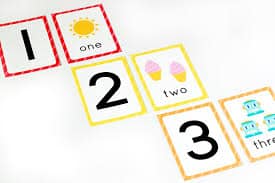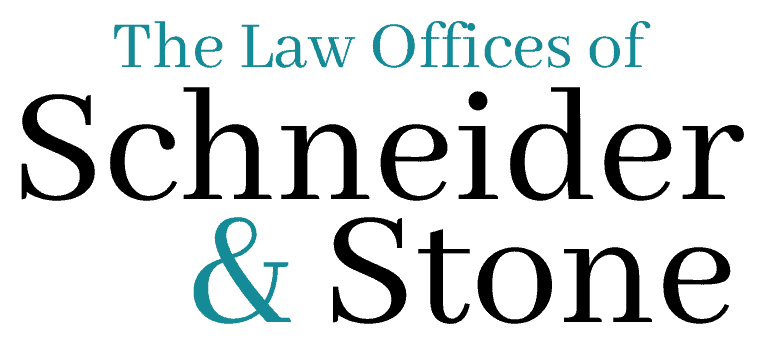
Having already discussed Chapter 7 Bankruptcy it is time to talk a little bit about Chapter 13 Vs. Chapter 7. Chapter 13 Bankruptcy is sometimes referred to as “reorganization bankruptcy.” This is due to the fact that unlike Chapter 7 where you will liquidate, in Chapter 13 you will end up paying back some of your debt. How much and for how long will depend on a lot of factors that will be discussed at length here and in future posts. There is a lot of information out there about Chapter 13 and most of it is misleading or false. This is why it is important to work with an experienced Chicago Chapter 13 Bankruptcy Attorney to help you through the reorganization process.
Do I have A Choice In Whether to File Chapter 13 Bankruptcy vs. Chapter 7?
The first question I am confronted with by my Chapter 13 Bankruptcy clients is why would they file for Chapter 13 and have to pay something back to their creditors when Chapter 7 allows a complete discharge without having to pay anything. There are a lot of reasons why one would do this but most commonly they do not have a choice. What I mean by this is that since the 2005 BAPCPA amendments to the Bankruptcy Code a nasty little beast called the means test was invented to disqualify people from filing for Chapter 7 when they otherwise would have chosen that over Chapter 13. The means test is extremely complex and most regular bankruptcy practitioners do not understand exactly how it works. Fortunately, I do understand it which is why I am not going to go into the inner workings of it here, rather I will explain why it often forces my clients to file for Chapter 13. In essence there are two questions to ask when determining if you are forced into Chapter 13 or not: 1. is your household income above the median for the State of Illinois?; 2. after paying your monthly bills do you have money left over to pay anything towards creditors? If the answer to both questions is yes then you are most likely forced to file for Chapter 13. If the answer to either question is no then you need the advice of a creative yet practical Chicago Bankruptcy Law Firm to guide you in this decision because you may have some options.

Reasons to Choose Chapter 13 Bankruptcy
Having discussed why one may be forced into Chapter 13 Bankruptcy, it is now time to illustrate the fact that even if one can get past the means test and qualify for Chapter 7 they may still choose Chapter 13. I always like to examine all of the angles and make sure that I advise my clients on the best way to achieve their goals and that is not always going to be the easiest and quickest option. There are a number of reasons to choose Chapter 13 vs. Chapter 7 some of the most common are…
Reason 1: You Have Debts That Are Non-Dischargeable in Chapter 7
The most common reason for advising my clients to choose Chapter 13 is because they have certain debts that they will not be able to use bankruptcy to get rid of in Chapter 7. This is because the discharge provisions of each chapter are different. The discharge provisions for Chapter 7 can be found by following this link to the bankruptcy code. I will not go into them in this post but if you clicked on the link you can see that the bankruptcy code gives a debtor in Chapter 7 a discharge from all debts except for those found in a separate section of the bankruptcy code. That section of the bankruptcy code lists 19 different debts that the discharge does not apply to. Contrast that with the discharge you receive in Chapter 13. The Chapter 13 discharge does not have that list of 19 debts that the discharge does not apply to. The Chapter 13 discharge is much more powerful. Some of the common debts that can be discharged in Chapter 13 but not in Chapter 7 include parking tickets, toll violations, and certain marital support obligations (yes this means certain debts that ended up being assigned to you in your divorce decree).
Reason 2: You have property that you do not want liquidated in a Chapter 7 Bankruptcy.
When entering either Chapter 7 or Chapter 13 Bankruptcy case you will have to make a full disclosure of all of the assets you own. As long as you do not have significant assets (and otherwise qualify) Chapter 7 may be a good choice. However, if your assets were to be liquidated and upon liquidation you would have enough cash to pay your creditors you may lose your property in a Chapter 7. The way this works is that when a Chapter 7 case is filed a liquidating trustee is appointed by the United States Trustee. One of the only jobs of the liquidating trustee is to see if they can find property in your case in order to sell it. They are paid a percentage of whatever they find so you had better believe that they are looking to find something to sell. That process only happens in Chapter 7 and not in Chapter 13. In Chapter 13 we pretend that one of the liquidating trustees had been appointed and try to determine how much money they would have gotten if they sold your property. This amount then needs to be paid out to your creditors over the next 3-5 years. This is a nice option for people that have equity in their homes or in an investment property and do not want to risk their property being sold. You will still pay out the same amount but it can be funded over time instead of out of the sale of the asset. This allows you to keep the asset and still have bankrupt relief. This is a very complicated issue and is always case specific.
Reason 3: You do not qualify for a Chapter 7 discharge.
If you have filed for Chapter 7 and received a discharge in that case within the prior 8 years then you do not qualify for another Chapter 7 discharge until 8 years after that first case was filed. That does not mean that you cannot file a Chapter 7 case, it simply means that you cannot get a discharge in the case. That rule only applies to a Chapter 7 discharge and not to a Chapter 13. For a Chapter 13 discharge it only has to have been 4 years since the filing date of the Chapter 7 case in order to get a Chapter 13 discharge. Since a Chapter 13 case has a statutory minimum length of 3 years it is very unlikely that you will not qualify for a Chapter 13 discharge by the time it is to be ordered. While this not the situation that most people plan for after a successful Chapter 7, it is nice to know that the option is there should the need arise. This is a pretty solid reason to file a Chapter 13 Vs. Chapter 7.
